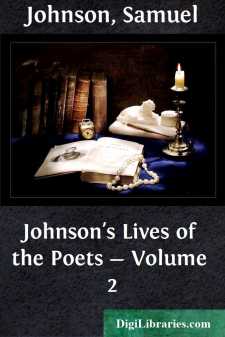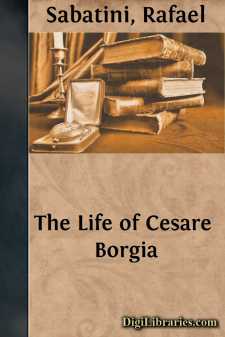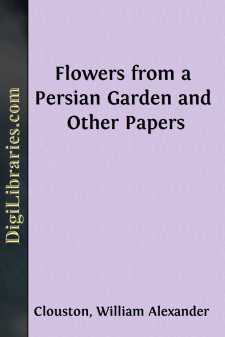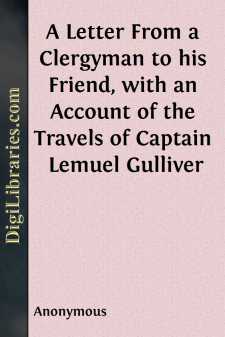Literary Criticism
- American 18
- Ancient and Classical 3
- Asian 1
- Australian & Oceanian 1
- Books & Reading 8
- Caribbean & Latin American 2
- Drama 2
- English, Irish, Scottish, Welsh 49
- European 7
- General 37
- Horror 1
- Humor 2
- Jewish 2
- Medieval 2
- Middle Eastern 3
- Poetry 7
- Renaissance 6
- Russian & Former Soviet Union 1
- Shakespeare 27
Literary Criticism Books
Sort by:
by:
Brander Matthews
LITERATURE IN THE NEW CENTURY [This paper was read on September 24th, 1904, in the section of Belles-lettres of the International Congress of the Arts and Sciences, held at St. Louis.] There is no disguising the difficulty of any attempt to survey the whole field of literature as it is disclosed before us now at the opening of a new century; and there is no denying the danger of any effort to declare...
more...
by:
Samuel Johnson
INTRODUCTION. This volume contains a record of twenty lives, of which only one—that of Edward Young—is treated at length. It completes our edition of Johnson's Lives of the Poets, from which a few only of the briefest and least important have been omitted. The eldest of the Poets here discussed were Samuel Garth, Charles Montague (Lord Halifax), and William King, who were born within the years...
more...
PREFACE In telling the story of Shakespeare's life and work within strict limits of space, an attempt has been made to keep closely to essential matters. There is no period of the poet's life, there is no branch of his marvellous work, that has not been the subject of long and learned volumes, no single play that has not been discussed at greater length than serves here to cover the chief...
more...
CHARLOTTE BRONTË Objection is often raised against realistic biography because it reveals so much that is important and even sacred about a man's life. The real objection to it will rather be found in the fact that it reveals about a man the precise points which are unimportant. It reveals and asserts and insists on exactly those things in a man's life of which the man himself is wholly...
more...
CHAPTER I INTRODUCTORY In history we find certain names associated with great movements: Luther with the Reformation, or Garibaldi with the liberation of Italy. Luther certainly posted on the door of the church at Wittenberg his famous Theses, and burnt the Papal Bull at the gates of that city; yet before Luther there lived men, such as the scholar Erasmus, who have been appropriately named Reformers...
more...
by:
Rafael Sabatini
PREFACE This is no Chronicle of Saints. Nor yet is it a History of Devils. It is a record of certain very human, strenuous men in a very human, strenuous age; a lustful, flamboyant age; an age red with blood and pale with passion at white-heat; an age of steel and velvet, of vivid colour, dazzling light and impenetrable shadow; an age of swift movement, pitiless violence and high endeavour, of sharp...
more...
INTRODUCTION Gay's concern in his survey of The Present State of Wit is with the productions of wit which were circulating among the coffee-houses of 1711, specifically the large numbers of periodical essays which were perhaps the most distinctive kind of "wit" produced in the "four last years" of Queen Anne's reign. His little pamphlet makes no pretence at an analysis of true...
more...
I SKETCH OF THE LIFE OF THE PERSIAN POET SAADI—CHARACTER OF HIS WRITINGS—THE “GULISTÁN”—PREFACES TO BOOKS—PREFACE TO THE “GULISTÁN”—EASTERN POETS IN PRAISE OF SPRINGTIDE. It is remarkable how very little the average general reader knows regarding the great Persian poet SaádÐÑ and his writings. His name is perhaps more or less familiar to casual readers from its being...
more...
by:
Anonymous
INTRODUCTION We have a Book lately publish'd here which hath of late taken up the whole conversation of the town. Tis said to be writ by Swift. It is called, The travells of Lemuell Gulliver in two Volumes. It hath had a very great sale. People differ vastly in their opinions of it, for some think it hath a great deal of wit, but others say, it hath none at all. John Gay to James Dormer (22...
more...
INTRODUCTION. PART I. ORIGIN OF HUMOUR. Pleasure in Humour—What is Laughter?—Sympathy—First Phases—Gradual Development—Emotional Phase—Laughter of Pleasure—Hostile Laughter—Is there any sense of the Ludicrous in the Lower Animals?—Samson—David—Solomon—Proverbs—Fables. Few of the blessings we enjoy are of greater value than the gift of humour. The pleasure attendant upon it...
more...











